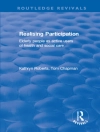Decolonisation after Democracy addresses the provocative idea that we need to rid higher education of lingering forms of colonial knowledge. This matters because in the colonial era much knowledge was put to the service of subjugating indigenous peoples, and the assumptions from this era may linger into the present. Examples of deep-rooted and ‘foundational’ forms of knowledge that carry colonial traits are normative binaries such as ‘civilised and backward’, ‘modern and traditional’ and ‘rational and superstitious’. In addition, some accounts of positive values like freedom, equality, justice and democracy may hide the assumption that the western experience is the norm, from which other kinds are rendered imitations, deviations or pathologies.In this collection, some of South Africa’s leading political scientists and academics engage with the challenge of decolonising knowledge in the research and teaching of politics. It includes new insights about the state, international relations, clientelism, statesociety relations and land reform; and introduces new ways to engage the colonial library, curriculum reform, and the marginality of historically black institutions. Finally, the contributors deal with the decolonial challenge posed by the #Fees Must Fall student movements, reflecting on issues of revolutionary politics and gender and sexual violence.This book was originally published as a special issue of Politikon.
Laurence Piper
Decolonisation after Democracy [PDF ebook]
Rethinking the Research and Teaching of Political Science in South Africa
Decolonisation after Democracy [PDF ebook]
Rethinking the Research and Teaching of Political Science in South Africa
¡Compre este libro electrónico y obtenga 1 más GRATIS!
Idioma Inglés ● Formato PDF ● Páginas 156 ● ISBN 9780429788550 ● Editor Laurence Piper ● Editorial Taylor and Francis ● Publicado 2020 ● Descargable 3 veces ● Divisa EUR ● ID 7974961 ● Protección de copia Adobe DRM
Requiere lector de ebook con capacidad DRM












